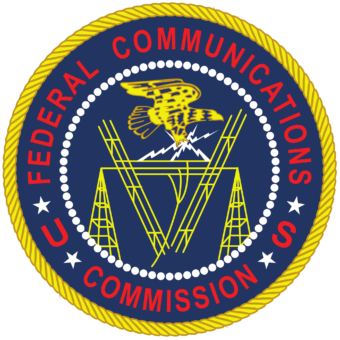
(Public domain image courtesy FCC)
Did you send in a comment about net neutrality prior to the recent FCC vote? Are you sure? Because Ketchikan’s city manager was surprised to learn a comment was submitted in his name in August of this year, asking the federal government to repeal net neutrality. Karl Amylon says he definitely did not submit a comment.
There’s evidence that identities were stolen to submit millions of comments to the Federal Communications Commission arguing against net neutrality.
A quick check of the FCC comments database shows just shy of 900 comments were submitted from Ketchikan’s area code, including the city manager’s. More than 2,500 comments were submitted this year with Juneau addresses.
Scrolling through the many pages of Ketchikan results shows comments that were sent September through December generally oppose repealing net neutrality. Prior to that, mostly in August of this year, the majority of comments urge the FCC to roll back net neutrality rules.
Some people appear to have commented multiple times, and the vast majority of comments are in the style of a form letter, the same message sent over and over again.
Ketchikan Public Utilities Telecommunications Manager Ed Cushing said that, like Amylon’s, many of those comments likely are fake.
“It’s essentially the world we live in,” Cushing said.
Ketchikan had 900 comments, the City of Craig had 400. Statistically, Cushing said, it’s really, really unlikely so many people in these small Alaska cities actually sent in comments.
“As a practical matter, this is the reason as I understand it that the FCC essentially decided to ignore the avalanche of comments that were submitted, whether they were emails or letters, because it was statistically improbably that that number of letters would be sent in, or that number of emails would be sent in on any one topic,” he said. “And there had been so many that had been identified as fraudulent.”
According to a Pew research report, before 2014, a comment period on the same topic generated about 4 million submissions. When it was reopened for comment this year, the number of submissions jumped to 22 million. They came in big batches — 75,000 in one second — and some individuals submitted comments thousands of times.
So, if you sent a real comment to the FCC, it was likely lost in the flood of fakery.
Cushing said that level of fraud wasn’t practical until recently.
“Put phony names and addresses on letters and then fold the letters and put them in envelopes and the cost of stamps and all the rest of it, right? It would be prohibitive for someone to pull that off,” he said. “Today, if you can write the proper software program, punch a few buttons, off it all goes.”
So what can the average person do in this new world of rampant fraud to make their voice heard? Cushing said the first step is to vote. Because elected officials listen to people who vote.
“And then, having voted, and hopefully having the person you support been elected, they will pay attention to your letter when it comes in,” he said. “Or their staff will pay attention when you call them, personally.”
But sending comments to a federal agency on a hot-button issue? Cushing said they’ll most likely be discounted. And, like the FCC’s recent decision on net neutrality, regulators will base decisions on other factors.
Search here to check if your name is in the FCC comments database.
